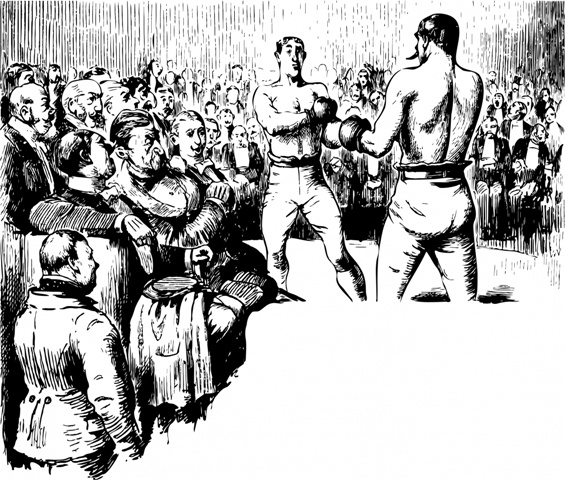[spacer height=”20px”]
The fight game has a long history of corruptions, and in fact the phrase, “the fix is in” goes back to 1790 where it was used to mean tampered with, or rigged. In modern times, the claim of rigged fights is long and includes such notables as the Ali vs. Liston rematch, Mayweather vs. Pacquiao, McGregor vs. Mendes, and Rousey vs. Holm. While these fights may or may not have been rigged, with such large amounts of money at stake, the temptation is great, and the benefits are enormous. However, rigging events has moved from boxing to include other sports and, of course, elections. In 2014, there was a claim that the Superbowl was rigged, and now in 2016, there is the claim that the Democrat primary election is rigged.
[spacer height=”20px”]
It has been said that, “the fix is in,” in reference to both the Republican and the Democratic primaries this election season. While the Republican primary is settled, the outcome for the Democrats is yet to be determined. Despite Clinton becoming the presumptive nominee, Sanders has vowed to fight on.
[spacer height=”20px”]
Bernie Sanders has claimed the election is rigged, and when you examine the system used by the Democratic Party, it is difficult to come to a different conclusion. The Democrats have 4,764 total delegates in the primary, and 712 of these are superdelegates. The superdelegates represent the party establishment and can vote for either candidate regardless of what the primary voters have decided. The superdelegates make up 15% of the total delegate count, but superdelegates make up 30% of the total delegates needed to win the primary. Sanders could win 58% of the regular delegates and still lose the primary to Hillary Clinton because of the superdelegates who represent the party leaders but not necessarily the voters. This is interesting because you would expect the Democratic Party to be a little more democratic.
[spacer height=”20px”]
Actually the Democratic Party created the superdelegate system in the 1970s after the nomination of George McGovern and to some extent Jimmy Carter, so that the party elite could control the outcome of future elections. That is why Hillary Clinton a true insider candidate has been bragging since August of 2015 that she had a lead over her opponent. If it was not for the superdelegate lead, Clinton might have been a little less arrogant. After all, 40% of the Democrats would not use the word honest to describe her, and the majority of Americans do not trust her.
[spacer height=”20px”]
One big advantage to controlling the superdelegates is that it has been a difficult fight for Sanders from the beginning of the primary. He has largely had an uphill battle, and it has taken him a long time to gain momentum. It is, of course, merely speculative, but one has to wonder how the election would have turned out if there was an even playing field, if the system wasn’t rigged, or if the fix was not in.
[spacer height=”20px”]
Ironically, perhaps the best advice Sanders can have comes from Donald Trump. “When somebody challenges you, fight back. Be brutal, be tough.”
[spacer height=”20px”]
Until next time…
